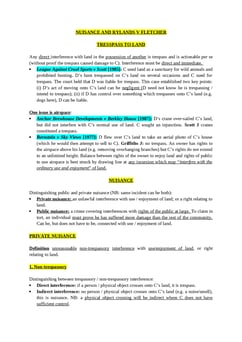Bunt v Tilley [2006] 3 All ER 336
Judgement for the case Bunt v Tilley
Table Of Contents
Plaintiff sued Defendant 1 for posting defamatory messages about him on Defendant 2’s website.
Defendant 2 applied to have the claim against them struck out and CA allowed the application.
To be liable for a defamatory publication a defendant must be knowingly involved in the process of publication of the relevant words, and it was not enough that the defendant merely played a passive instrumental role in the process and an ISP who performed only a passive role could not be deemed a publisher.
Eady J
This is distinct from Godfrey as in that case the ISP had actively chosen to receive and store the newsgroup exchanges containing the posting and it chose not to remove the posting once it knew of its defamatory content (surely this is still passive: choosing not to do something is not “active” in common parlance).
In determining responsibility for publication in the context of the law of defamation, it seems to me to be important to focus on what the person did, or failed to do, in the chain of communication. It is clear that the state of a defendant's knowledge can be an important factor
However defamation can occur without actual awareness.
RELATED CASES
For Further Study on Bunt v Tilley
Need instant answers? Our AI exam tutor is here to help.
Ask questions 🙋 Get answers 📔 It's simple 👁️👄👁️
Our AI is educated by the highest scoring students across all subjects and schools. Join hundreds of your peers today.
Get StartedSimilar Cases
Related Product Samples
These product samples contain the same concepts we cover in this case.

 Since 2010, Oxbridge Notes has been a trusted education marketplace, supplying high-quality materials from top achievers at universities like Oxford, Cambridge, LSE, Harvard, and Yale.
Since 2010, Oxbridge Notes has been a trusted education marketplace, supplying high-quality materials from top achievers at universities like Oxford, Cambridge, LSE, Harvard, and Yale.